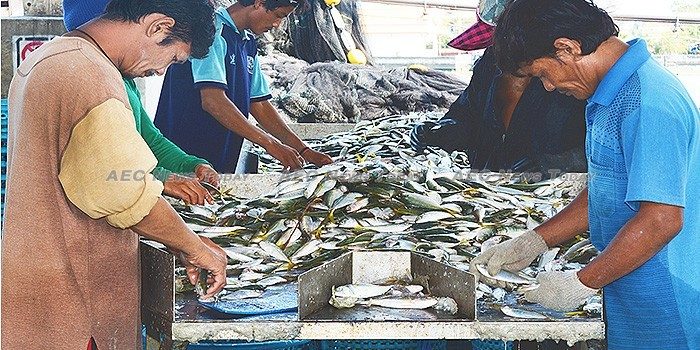The struggling Thailand economy received an unexpected whack for the year ahead yesterday (Oct 26) when US President Donald Trump suspended $1.3 billion worth of duty-free trade for Thai items, including seafood, under the Generalized System of Preferences (GSP) programme.
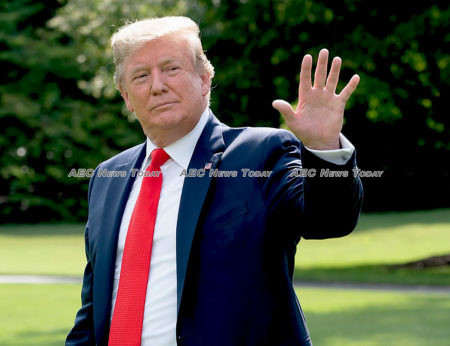
President Trump is reported to have sent a letter to US House of Representatives Speaker, Nancy Pelosi, and the president of the Senate, vice president Mike Pence, advising them of his decision.
The letter allegedly claims that Mr Trump had suspended duty-free treatment of some Thai products, because the government had not taken steps to ‘afford workers in Thailand internationally recognised worker rights’, including freedom of association and collective bargaining.
Suspension from the scheme, which last year saw some $4.5 billion in Thai exports enter the US at reduced tariff rates, will come into effect commencing April 25.
The suspension of GSP privileges will affect about one-third of Thailand’s products included in the programme, including electrical appliances and electronics components, food and agriculture products, and machinery.
Worker rights concerns
A statement by the US Trade Representative’s office (USTR) said duty-free treatment will be revoked for all Thailand’s seafood exports to the United States over longstanding worker rights issues in the seafood and shipping industries. In all 53 different products will lose their exemptions.
In 2018 Thailand was the eighth largest exporter of seafood globally in dollar value, with fishery exports generating about 20 percent of Thailand’s total food product exports. Between 2016 and 2017 Thailand fishery exports increased by 4 per cent, from $5.6 billion to $5.8 billion.
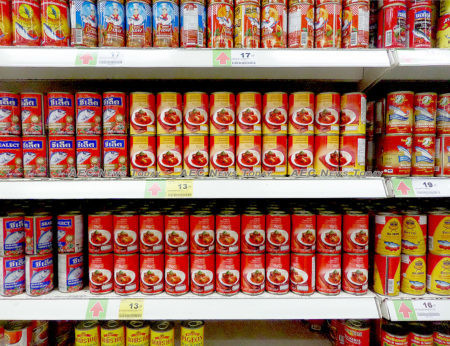
Canned tuna and sardines, processed shrimp, prawn, and squid account for over 70 per cent of total fishery product exports, with Japan, the United States, Australia, Canada, and China ranking as the top five destinations.
Thailand’s largest canned seafood producer is Thai Union Food (TUF) Group, which also owns Petit Navire, John West, Chicken of the Sea, Century Tuna, Sealect and Mareblu, amongst other internationally recognised brands.
The suspension of GSP access will no-doubt disappoint Thai authorities and manufacturers, and also appears to have caught all by surprise.
Keerati Rushchano, director-general of the Foreign Trade Department (FTD) told The Bangkok Post on Saturday ,“I need more time to assess the impact as we just got the list of affected products”.
A social media operator for TUF advised AEC News Today that due to the weekend the company will be issuing a statement tomorrow. There was no reply from the Ministry of Foreign Affairs due to the weekend.
Battle against IUU fishing & human trafficking
| Last year more than 1.3 million undocumented migrant workers were registered in Thailand in a nation-wide campaign Video AEC News Today |
In April 2015 the European Commissioner for environment, maritime affairs and fisheries (DG Mare) issued Thailand a ‘ yellow card’ for failure to address long-standing breaches of illegal, unreported, and unregulated (IUU) fishing rules.
The government responded with a commitment almost unseen before in Thailand. Multi-department agencies were established, and traditional command and reporting lines brushed aside using sweeping powers provided to Thailand Prime Minister General Prayut Chan-o-cha under Article 44 of the interim constitution.
Parallel with addressing the technical issues covered by the IUU, Thailand implemented a major drive against human trafficking and human rights abuse, particularly involving migrant labour, which are not covered by IUU regulations. Thailand’s fishing and seafood sectors employ more than 300,000 workers, some 90 per cent of who are migrants from Myanmar and Cambodia.
The government’s hard-line approach brought it frequently into conflict industry operators, at one stage seeing fish markets in Bangkok run perilously short of fresh fish as boat captains refused to go to see in fear of having their vessels seized. More than 30,000 fishing boats have been removed from the national fleet.
Industry key player in Thai seafood industry reform
The clean up hasn’t all been government driven. Following an AP report in 2015 that showed that its shrimp supply chain was tainted with questionable labour practices, TUF announced it would cease using sub-contractors.
In a previously unplanned for occurrence it spent more than $5 million bringing some 1,000 workers from external pre-processing factories in house. Suppliers found in breach of IUU or labour or human rights standards had contracts terminated.

In its separate battle against human trafficking, and labour abuses, a Thai government programme last year saw more than 1.3 million undocumented migrant workers, the majority in the seafood and fish processing industries, registered and provided with social security, and welfare entitlements.
The removal of the yellow card at the beginning of this year disappointed many human rights organisations who felt that a valuable lever to maintain focus (and donations) for human rights or labour violation campaigns in the Thailand fisheries and seafood sector had been lost.
Some 60,000 fishers are employed on Thailand commercial fishing boats, while a report in May said that there were 42,000 job vacancies.
Following the lifting of the yellow card Johnny Hansen, chair of the International Transport Workers’ Federation (ITF) Fisheries Section said that while ‘the Thai government has made some positive attempts at reform regarding regulation of illegal fishing, the implementation and effective enforcement of these regulations remains weak
“Fishers still face many issues, including low wages, document retention, lack of effective health and safety provisions onboard, high identity document costs, debt bondage, and poor working conditions, he told New Food in January.
Thailand’s IUU & labour reforms continue
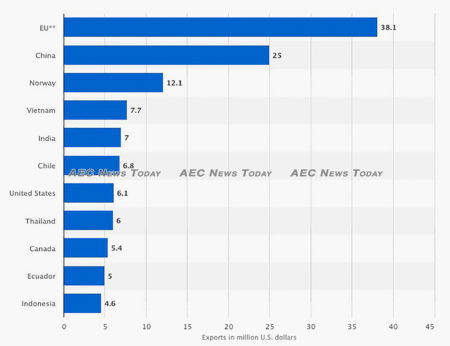
Just days after the interview was published Thailand became the first country in the Asia-Pacific region and the 14th country globally to ratify the Work in Fishing Convention No 188, 2007 (WIFC).
Sponsored by the International Labour Organisation (ILO), the treaty, which the USA has not ratified, sets to bolster the living and working conditions onboard commercial fishing vessels.
Amongst other things the WIFC sets out binding requirements relating to work on board fishing vessels, including occupational health and safety, medical care at sea and ashore, rest periods, written work agreements, and social security protection (See: Thailand leads Asia-Pacific in improving fishers lives).
Since its yellow card removal Thailand has maintained its IUU momentum, and steps to improve labour conditions.
In June, in conjunction with the ILOs Ship to Shore Rights Project, a Stella Maris Seafarer’s Centre and a Migrant Children Learning Centre (MCLC) was opened in Pattani, joining others already open in Rayong, and Chonburi.
Fishers and migrant labour must now also be paid by bank deposit, and Thailand’s banks have been berated to ensure sufficient ATMs and stocks of cash to meet demand on pay days. Help screens on ATMs, along with those on a Ministry of Labour (MoL) website set up for migrant workers with grievances are in six languages, while a 1506 hotline for workers in distress has the same capability.
Last month Thai authorities working in cooperation with OceanMind and Interpol intercepted and seized the fish carrier vessel ‘Uthaiwan’, with a history of IUU fishing globally, as it attempted to pass through Thai waters under cover of darkness after leaving Cambodia. Cambodian authorities have not commented on why the ships was not detained there.
US chemical ban, trade deficit
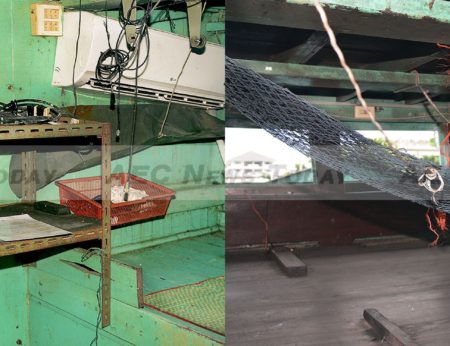
The surprise announcement by the US President came just days after the US embassy in Thailand forwarded a letter dated October 18 from the US Agricultural Department (USDA) asking the government to review a ban on dangerous chemicals used in the agricultural industry. The letter claims it will cost the US about $1.7 billion in exports to Thailand.
On October 22, Thailand’s National Committee on Hazardous Substances (NCHS) voted to ban the toxic chemicals paraquat, glyphosate, and chlorpyrifos due to ongoing health-concerns for farmers and those who come into contact with them. Concerns over damage to Thailand’s ongoing ‘food basket of the world’ campaign were also raised.
According to information from the USTR Thailand is the United States’ 20th largest goods trading partner.
Two-way goods trade between Thailand and the US totalled $44.5 billion in 2018, delivering a US goods trade deficit with Thailand of $19.3 billion, close to the limit of $20 billion set by President Trump.
Thailand is currently the second largest beneficiary of the US’s GSP behind India, which was the largest GSP beneficiary with $5.7 billion in imports to the US in 2017. In May this year the US announced that it was terminating India’s designation as a GSP beneficiary developing nation.
Update: This article was last updated at 1557 on October 28, 2019 to correct the spelling of Keerati Rushchano’s name.
Related:
- Trump reinstates duty-free trade for some Ukrainian goods, suspends it for some Thai goods (Reuters)
- Thai exports will suffer from GSP cut decision by US President Trump (Thai PBS)
- Thailand seeks clarity on scrapping of US trade preferences (Bangkok Post)
- Trump hits Thai seafood industry over worker rights (Aljazeera)
John Le Fevre
He has spent extensive periods of time working in Africa and throughout Southeast Asia, with stints in the Middle East, the USA, and England.
He has covered major world events including Operation Desert Shield/ Storm, the 1991 pillage in Zaire, the 1994 Rwanda genocide, the 1999 East Timor independence unrest, the 2004 Asian tsunami, and the 2009, 2010, and 2014 Bangkok political protests.
In 1995 he was a Walkley Award finalist, the highest awards in Australian journalism, for his coverage of the 1995 Zaire (now Democratic Republic of Congo) Ebola outbreak.
Prior to AEC News Today he was the deputy editor and Thailand and Greater Mekong Sub-region editor for The Establishment Post, predecessor of Asean Today.
In the mid-80s and early 90s he owned JLF Promotions, the largest above and below the line marketing and PR firm servicing the high-technology industry in Australia. It was sold in 1995.
Latest posts by John Le Fevre (see all)
- COVID-19 in Asean: update for July 26 — 16 mln case barrier breached, Vietnam records community transmission – July 26, 2020
- COVID-19 in Asean: update for July 25 — new high for daily infections, 16 mln infection barrier to break today – July 25, 2020
- COVID-19 in Asean: update for July 24 — Asean tops 230,000 cases, nudges 90,000 active – July 24, 2020
- Thailand morning news for July 24 – July 24, 2020

